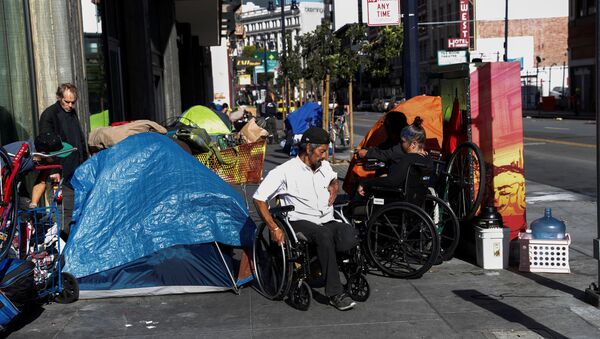According to Emily A. Benfer, a housing expert and associate professor at Columbia Law School, evictions will soon be allowed in around half of US states, even though government orders instituted after the coronavirus outbreak began placed evictions on hold in many US cities.
“I think we will enter into a severe renter crisis and very quickly,” Benfer told the New York Times, adding that without additional government assistance, there will be an “avalanche of evictions across the country.”
Earlier this month, the Texas Supreme Court ruled that evictions would be allowed in the state starting May 26, despite many activists warning that lifting moratoriums early would cause a surge in evictions. Last week, the Oklahoma County Sheriff’s Office announced that it would also start enforcing evictions starting May 26.
According to a May 21 news release by the US Bureau of Labor Statistics, there have been at least 38.6 million jobless claims filed by Americans in the last nine weeks.
The official unemployment rate last month was 14.7%, while a recent survey by the Census Bureau showed that 47% of all US households say their income has decreased due to the pandemic. The survey, released this month, also found that almost a quarter of participants said they missed their last rent or mortgage payment.
“We sort of expect this to be more of a renter crisis than a homeownership crisis,” Elora Lee Raymond, an assistant professor at the Georgia Institute of Technology, told the Times.
Although evictions may increase during the pandemic, they had been on the rise in the US before the crisis. According to online rental property search firm Apartment List, at least 2.7 million Americans were evicted in 2017, which is 1.1 million more than were evicted in 2000. The National Low Income Housing Commission has “estimated a need for no less than $100 billion in emergency rental assistance” during the pandemic.


